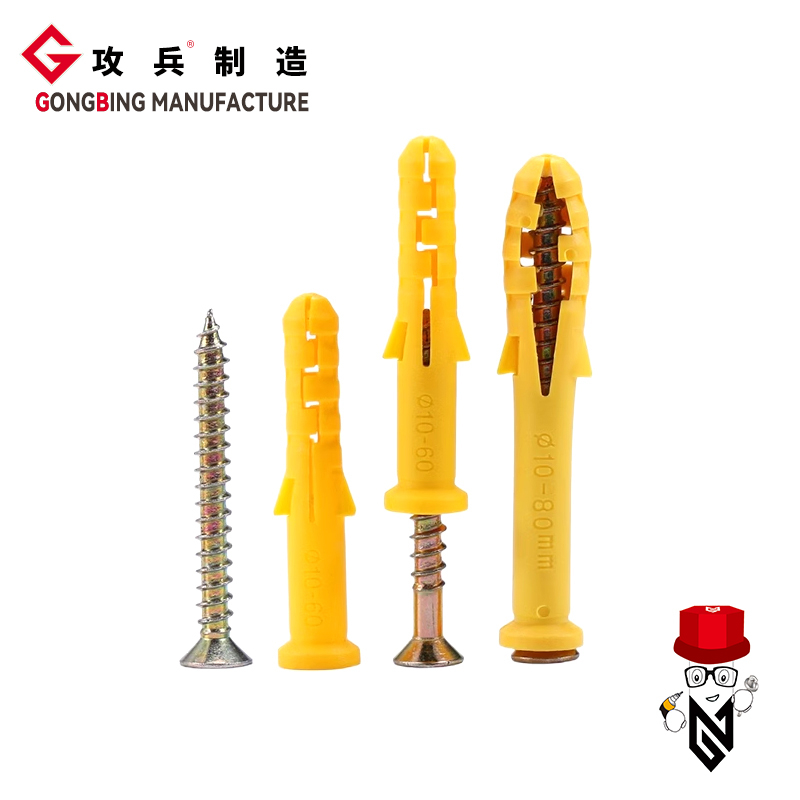Understanding the Role of Chemical Anchor Fasteners in Modern Construction and Structural Applications
Understanding Chemical Anchor Fasteners A Comprehensive Guide
In the realm of construction and engineering, the importance of reliable fastening solutions cannot be overstated. Among various fastening technologies, chemical anchor fasteners have garnered significant attention due to their unique properties and applications. This article delves into the concept of chemical anchor fasteners, their composition, advantages, installation process, and common applications.
Chemical anchor fasteners are specialized systems designed to provide strong and durable connections between materials, particularly in situations where traditional mechanical anchors may fall short. These fasteners typically consist of a resin or epoxy-based adhesive that bonds with the materials being joined, such as concrete, masonry, or wood. When the adhesive cures, it creates a solid, load-bearing bond that can withstand significant forces.
One of the standout features of chemical anchor fasteners is their high load capacity. Unlike conventional mechanical anchors, which rely on mechanical interlock or expansion to achieve holding strength, chemical anchors utilize the chemical properties of the adhesive to achieve a bond. This allows them to handle greater loads and stresses, making them ideal for heavy-duty applications.
Another benefit of chemical anchor fasteners is their versatility. They can be used in a wide range of environments, including outdoor settings, underwater applications, and in areas with high vibration or shock loads. The adhesive used in chemical anchors is resistant to various environmental factors such as moisture, temperature fluctuations, and chemical exposure. This durability ensures that the fastening solution remains effective over time, even in challenging conditions.
chemical anchor fastener

The installation process of chemical anchor fasteners is relatively straightforward, yet requires careful attention to detail. Initially, a hole is drilled into the base material, which is typically concrete or masonry. The diameter and depth of the hole should correspond to the specifications provided by the manufacturer. Once the hole is prepared, it is cleaned to remove any dust, debris, or moisture that might interfere with the bonding process.
Next, the chemical adhesive is injected into the hole. There are two main types of chemical anchors one-component and two-component systems. One-component systems usually come in a pre-packaged cartridge that can be dispensed directly into the hole. In contrast, two-component systems require the mixing of resin and hardener before application, providing the user with an added level of customization in terms of curing times and material properties.
After the adhesive is applied, the anchor rod or bolt is inserted into the hole. It is essential to ensure that the anchor is positioned correctly, as adjustments may be difficult once the adhesive begins to cure. The curing time may vary based on the type of adhesive used, with some fast-curing options available for quick installations.
Common applications of chemical anchor fasteners include securing structural elements such as beams, columns, and façade systems in buildings. Additionally, they are widely used in the installation of machinery, railings, and other infrastructure components that require a robust and reliable connection.
In conclusion, chemical anchor fasteners provide an innovative and effective solution for fastening applications, particularly in demanding environments. Their high load capacity, versatility, and ease of installation make them a preferred choice among contractors and engineers. As technology continues to advance, it is likely that chemical anchor systems will evolve, further enhancing their performance and expanding their applications across various sectors. Understanding the unique characteristics and benefits of chemical anchor fasteners is essential for professionals aiming to achieve safe and durable constructions.
-
Weatherproof Plastic Expansion Anchors for OutdoorNewsJun.06,2025
-
Sustainability in the Supply Chain: Eco-Friendly TEK Screws ProductionNewsJun.06,2025
-
Load-Bearing Capacity of External Insulation FixingsNewsJun.06,2025
-
Double Head Bolts: Enhancing Efficiency in Industrial MachineryNewsJun.06,2025
-
Corrosion Resistance in Chipboard Screws: Coatings for Wholesale DurabilityNewsJun.06,2025
-
Butterfly Toggle Bolts : Enhancing Structural ResilienceNewsJun.06,2025
